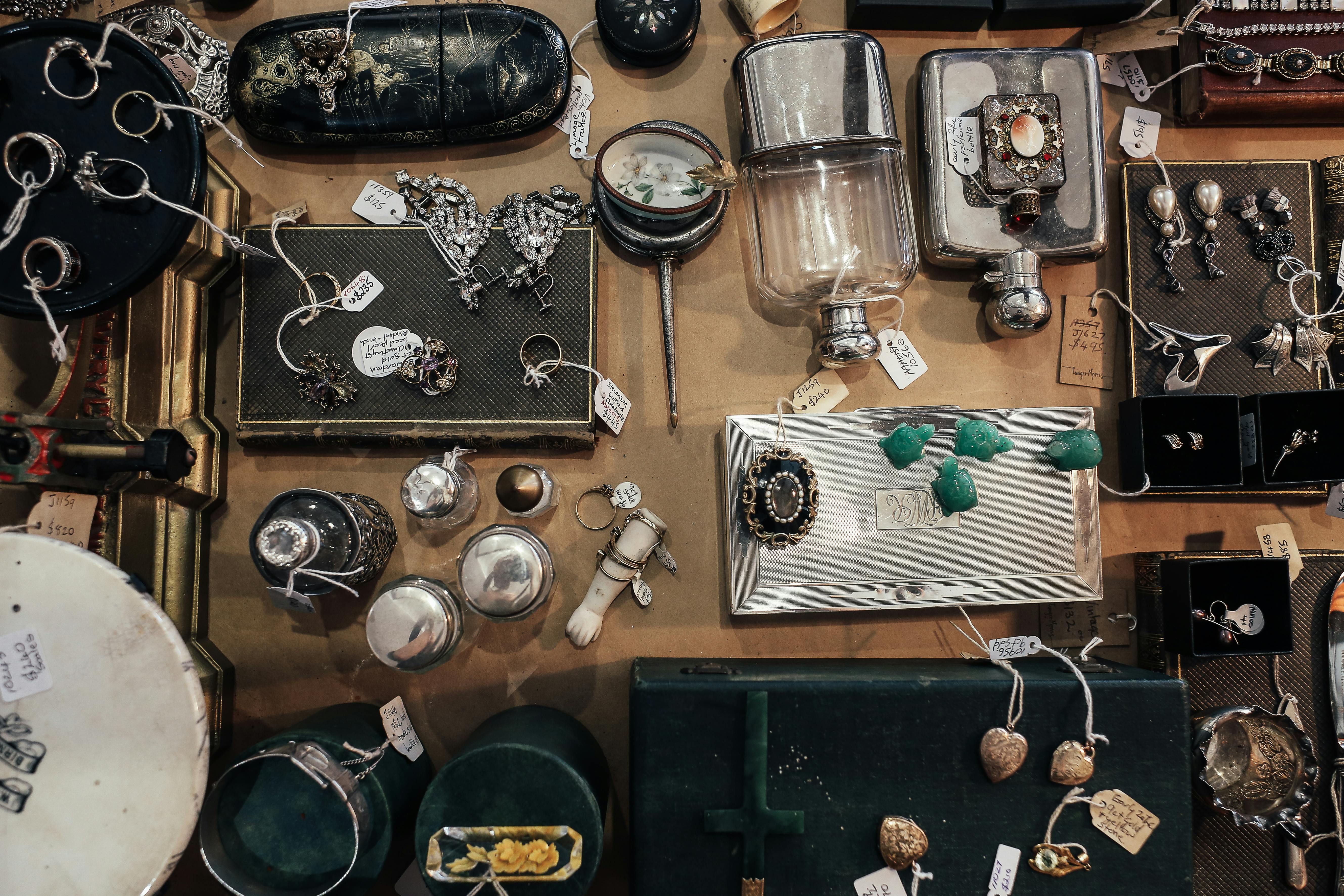Selling Your Parents Belongings After They Pass Away
Facing the task of Selling Your Parents Belongings After They Pass Away can feel overwhelming, especially when you’re also dealing with grief. It’s a journey filled with emotional attachments and practical decisions. This guide is here to help you through the process, offering clear steps and advice on how to manage your parents’ possessions with care and respect. We’ll cover everything from sorting items to exploring different selling options, aiming to make this challenging time a bit easier for you.
Key Takeaways
- Approach the process of managing your parents’ belongings with patience and self-care, recognizing the emotional weight involved.
- Start by organizing items into categories: keep, donate, sell, or discard, to streamline decision-making.
- Consider family input and any existing wills or wishes to ensure fairness and reduce potential disagreements.
- Explore various selling avenues, such as estate sales, online marketplaces, or consignment shops, based on the items’ value and your comfort level.
- Seek professional help from estate liquidators or appraisers for valuable items, or if the task feels too large to handle alone. Beloved Belongings Estate Services is ready to help you navigate your estate liquidation.
What should I do with my parents belongings?

Dealing with a parent’s belongings after they pass away is a big job. It’s not just about the stuff; it’s about memories, family history, and making sure everything is handled respectfully. It can feel overwhelming, but with a bit of planning, you can manage it without too much stress.
First, take a deep breath. There’s no need to rush. It’s okay to take your time to process everything. Start by going through each room and sorting items into categories:
- Things to keep (items with sentimental value or things you need).
- Things to donate (items in good condition that you don’t need).
- Things to sell (items of value that could benefit the estate).
- Things to discard (items that are broken or unusable).
As you sort, ask yourself some questions about each item:
- Do I need this?
- Do I want this?
- Does another family member want this?
- What is the sentimental value?
- What is the monetary value?
Open communication with family members is key. Talk about who wants what, and try to be fair. If there are disagreements, consider a mediator or a neutral third party to help resolve them. Remember, the goal is to honor your parents’ memory and avoid unnecessary conflict.
Once you’ve sorted everything, you can start thinking about what to do with each category. For items you want to keep, find a place for them in your home or offer them to other family members. For items you want to donate, contact local charities or organizations that accept donations. For items you want to sell, you have several options, which we’ll discuss later.
How do I sell all of their possessions that they left behind?

Selling a loved one’s possessions can feel overwhelming, but with a bit of planning, it can be managed effectively. It’s important to remember that the proceeds from these sales become part of the estate, so consulting with a lawyer or the probate court is a good idea before making any big decisions. Keeping open communication with family members and other beneficiaries can also help avoid disagreements.
Step 1: Sort and Categorize
Go through each room and create piles: keep, donate/give away, and sell. A separate pile for valuable items is also a good idea. This will give you a clearer picture of what you need to focus on selling.
- Items to Keep
- Items to Donate
- Items to Sell
Step 2: Determine Value
For items you think are valuable, do some research. A quick search on Google or eBay can give you an idea of their worth. Consider getting a professional appraisal for items you’re unsure about. This can help you set realistic prices and avoid selling items for less than they’re worth.
Step 3: Choose Your Selling Method
There are several ways to sell your parents’ belongings. Each has its pros and cons, so choose the method that best suits your needs and the types of items you’re selling.
- Online Marketplaces: Sites like eBay and Craigslist can be good for reaching a wide audience.
- Estate Sales: An estate sale can be a good option for selling a large number of items quickly.
- Consignment Shops: Consignment shops are good for selling clothing, jewelry, and other smaller items.
- Pawnshops: Pawnshops are an option for quick cash, but you’ll likely get less than the item’s actual value.
Selling belongings can be stressful, especially when dealing with grief. Take a deep breath, create a plan, and don’t be afraid to ask for help from friends and family.
Step 4: Prepare Items for Sale
Clean and repair items as needed. Good presentation can increase the selling price. Take clear photos and write detailed descriptions for online listings. For an estate sale, organize items in an appealing way.
Step 5: Price Strategically
Price items competitively based on your research and appraisals. Be willing to negotiate, but don’t undersell valuable items. Consider having a sale or offering discounts to move items that aren’t selling.
Step 6: Handle the Legal and Financial Aspects
Keep accurate records of all sales. Consult with a lawyer or accountant to understand the tax implications of selling estate assets. Make sure all sales comply with local laws and regulations.
Should I consider a silent auction?
Deciding how to handle your parents’ belongings can be tough, and a silent auction might be a good option to consider. It’s different from a regular auction or an estate sale, and it has its own set of pros and cons. A silent auction involves displaying items with bid sheets, allowing potential buyers to write down their offers without knowing what others are bidding. This can create a sense of excitement and competition, potentially driving up prices.
Silent auctions can be particularly effective for items that are unique or have sentimental value, as bidders may be willing to pay more due to emotional attachment or rarity.
Here’s a breakdown to help you decide if it’s the right choice:
- Convenience: Silent auctions can be organized at your own pace, allowing you time to prepare and manage the sale.
- Potential for Higher Prices: Competitive bidding can sometimes lead to higher prices than you might get in a straightforward sale.
- Community Engagement: Silent auctions can be a good way to involve friends, family, and the local community.
However, there are also some downsides:
- Time Commitment: Organizing a silent auction takes time and effort, from setting up the display to managing the bidding process.
- Uncertainty: There’s no guarantee that items will sell for the prices you expect.
- Marketing: You’ll need to promote the auction to attract enough bidders.
If you’re in the Tri-Cities, WA area, you might want to look into Silent Auction Services Tri-Cities, WA to help manage the event. They can handle everything from appraisal to marketing, making the process much easier. Ultimately, the best approach depends on the types of items you’re selling, your timeline, and your comfort level with managing the sale yourself. If you have a lot of items, you might also consider an estate sale or an auction to solve personal property disputes. Remember to write persuasive descriptions for each item to maximize engagement and drive higher bids.
Why You Should Trust Beloved Belongings Estate Services
Dealing with a parent’s estate is tough. It’s more than just selling stuff; it’s about handling memories and making sure everything is done right. That’s where Beloved Belongings Estate Sale Services in Tri-Cities, WA comes in. We understand the emotional weight and legal details involved in liquidation of personal belongings.
We aim to make this process as smooth and stress-free as possible for you. Our team is experienced in valuing, marketing, and selling estate items, ensuring you get the best possible return. We handle everything from start to finish, so you can focus on what matters most.
Choosing the right estate service is a big decision. You need someone you can trust to be respectful, efficient, and knowledgeable. We pride ourselves on our commitment to these values.
Here’s why Beloved Belongings is the right choice:
- We offer a free consultation to assess your needs and explain our process.
- We handle all aspects of the sale, including appraisal, staging, advertising, and sales.
- We provide transparent pricing and detailed accounting, so you always know what’s happening.
Conclusion
So, wrapping things up, dealing with your parents’ stuff after they’re gone can be really hard, but it’s something many of us have to do. It’s not just about selling things; it’s about handling memories and feelings too. Taking it step by step, being open with family, and getting help from people who know about these things can make a big difference. It’s okay to feel sad or overwhelmed. Just remember, you’re doing your best to manage a tough situation, and that’s what counts.
Frequently Asked Questions
What is the first action to take regarding my parents’ possessions after their death?
Upon the passing of a parent, the initial step is to carefully review their will or any estate planning documents. These documents will outline their wishes regarding the distribution of their belongings. If no such documents exist, the laws of the state will dictate the process. It is advisable to consult with an attorney specializing in estate law to ensure all legal requirements are met.
What are the common methods for selling inherited belongings?
Selling inherited items can be a complex process. Options include holding an estate sale, using online auction platforms for valuable items, or consigning items to specialized dealers. The best approach depends on the type, quantity, and value of the items. Professional estate liquidators can offer assistance with this task.
Is a silent auction a suitable method for disposing of inherited items?
A silent auction can be an effective way to sell a collection of items, particularly if there is significant interest from multiple parties. This method allows potential buyers to submit bids privately, often leading to competitive pricing. It is important to properly appraise items beforehand to set appropriate starting bids.
How are the funds from selling inherited items managed?
The proceeds from the sale of your parents’ belongings typically become part of their estate. These funds are then distributed according to the terms of the will or, in its absence, state inheritance laws. It is crucial to maintain detailed records of all sales and expenses for accounting purposes within the estate.
Should I seek professional assistance when selling my parents’ possessions?
While it is possible to manage the sale of belongings independently, engaging a professional estate liquidator or appraiser can be beneficial. These experts possess knowledge of market values, sales channels, and legal considerations, which can streamline the process and potentially maximize returns.
How can I ensure family harmony when dealing with inherited items?
Open and honest communication with family members is paramount. Discussing intentions for selling belongings, involving them in decisions where appropriate, and addressing any emotional attachments can help prevent misunderstandings and maintain family harmony during a sensitive time.




